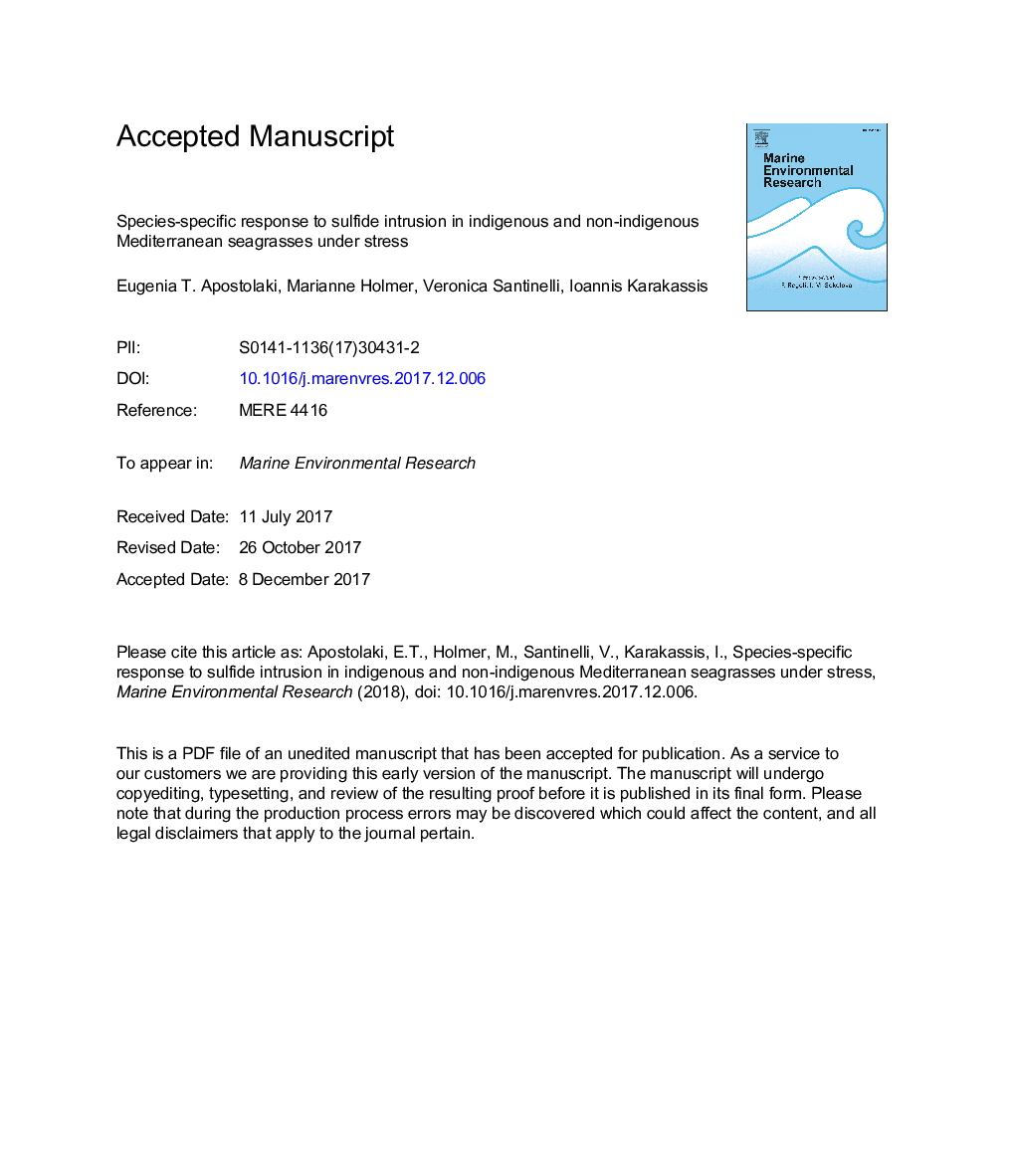| Article ID | Journal | Published Year | Pages | File Type |
|---|---|---|---|---|
| 8886382 | Marine Environmental Research | 2018 | 50 Pages |
Abstract
We explored the sulfur dynamics and the relationships between sediment sulfur and nutrient pools, seagrass structural and physiological variables and sulfide intrusion in native (Posidonia oceanica, Cymodocea nodosa) and exotic (Halophila stipulacea) Mediterranean seagrasses at six sites affected by cumulative anthropogenic pressures to understand the factors controlling sulfide intrusion in seagrass. Sensitive indicators of seagrass stress (leaf TN, δ15N, TS, Fsulfide) were increased at several sites, implying that seagrasses are under pressure. Sulfide intrusion was not related to sediment TOC but it was negatively related to shoot size and below-ground biomass. Sulfide intrusion in seagrass tissue was high in P. oceanica (12-17%) and considerably higher in C. nodosa (27-35%). Intrusion was particularly high in H. stipulacea (30-50%), suggesting that its possible biogeographical expansion due to warming of the Mediterranean may result in accumulation of sulfides in the sediments and hypoxia/anoxia with further implications in ecosystem function.
Keywords
Related Topics
Physical Sciences and Engineering
Earth and Planetary Sciences
Oceanography
Authors
Eugenia T. Apostolaki, Marianne Holmer, Veronica Santinelli, Ioannis Karakassis,
